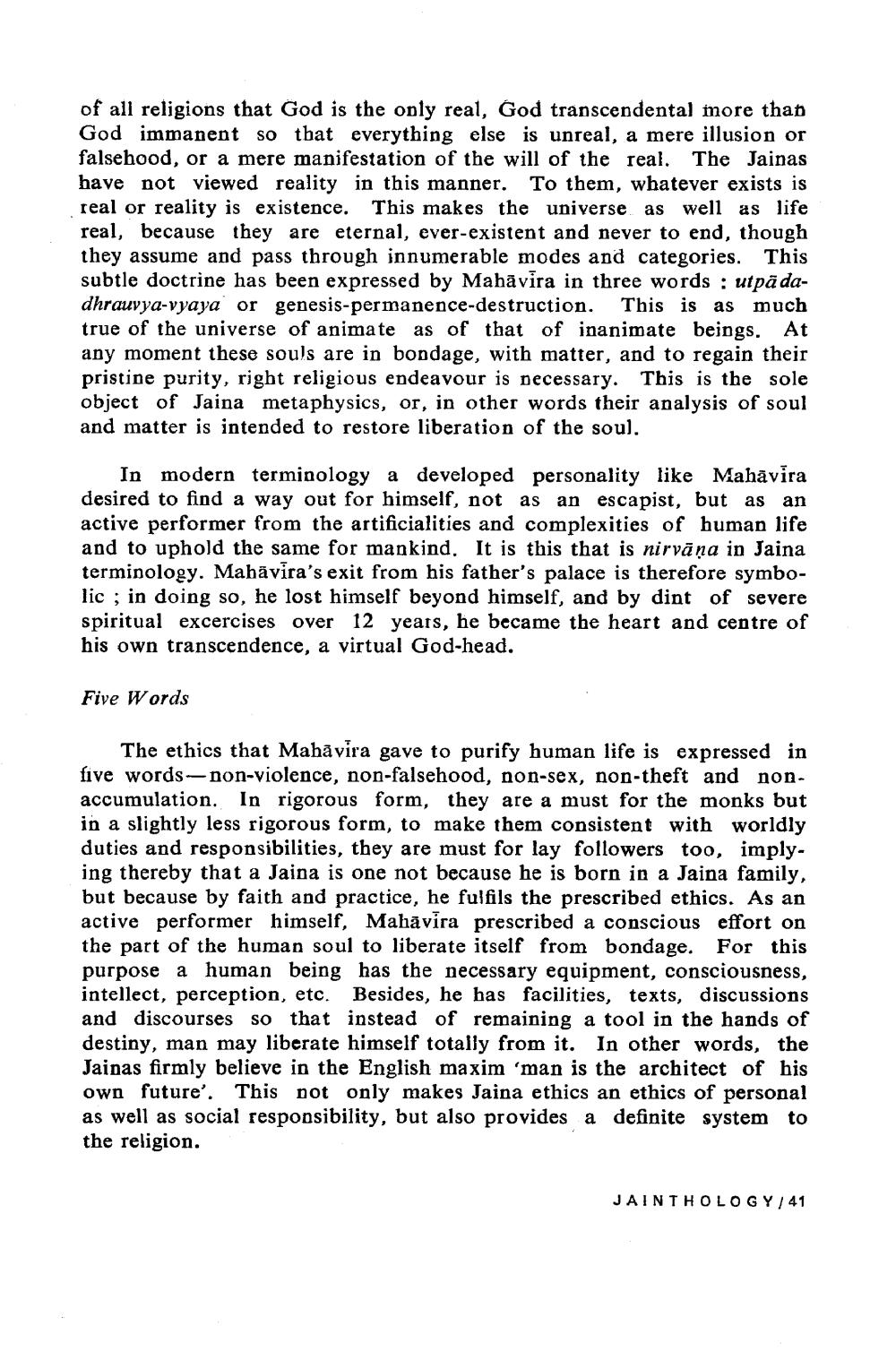________________
of all religions that God is the only real, God transcendental more than God immanent so that everything else is unreal, a mere illusion or falsehood, or a mere manifestation of the will of the real. The Jainas have not viewed reality in this manner. To them, whatever exists is real or reality is existence. This makes the universe as well as life real, because they are eternal, ever-existent and never to end, though they assume and pass through innumerable modes and categories. This subtle doctrine has been expressed by Mahavira in three words : utpadadhrauvya-vyaya or genesis-permanence-destruction. This is as much true of the universe of animate as of that of inanimate beings. At any moment these souls are in bondage, with matter, and to regain their pristine purity, right religious endeavour is necessary. This is the sole object of Jaina metaphysics, or, in other words their analysis of soul and matter is intended to restore liberation of the soul.
In modern terminology a developed personality like Mahavira desired to find a way out for himself, not as an escapist, but as an active performer from the artificialities and complexities of human life and to uphold the same for mankind. It is this that is nirvāņa in Jaina terminology. Mahavira's exit from his father's palace is therefore symbolic; in doing so, he lost himself beyond himself, and by dint of severe spiritual excercises over 12 years, he became the heart and centre of his own transcendence, a virtual God-head.
Five Words
The ethics that Mahavira gave to purify human life is expressed in five words-non-violence, non-falsehood, non-sex, non-theft and nonaccumulation. In rigorous form, they are a must for the monks but in a slightly less rigorous form, to make them consistent with worldly duties and responsibilities, they are must for lay followers too, implying thereby that a Jaina is one not because he is born in a Jaina family, but because by faith and practice, he fulfils the prescribed ethics. As an active performer himself, Mahavira prescribed a conscious effort on the part of the human soul to liberate itself from bondage. For this purpose a human being has the necessary equipment, consciousness, intellect, perception, etc. Besides, he has facilities, texts, discussions and discourses so that instead of remaining a tool in the hands of destiny, man may liberate himself totally from it. In other words, the Jainas firmly believe in the English maxim 'man is the architect of his own future'. This not only makes Jaina ethics an ethics of personal as well as social responsibility, but also provides a definite system to the religion.
JAINTHOLOGY/41




